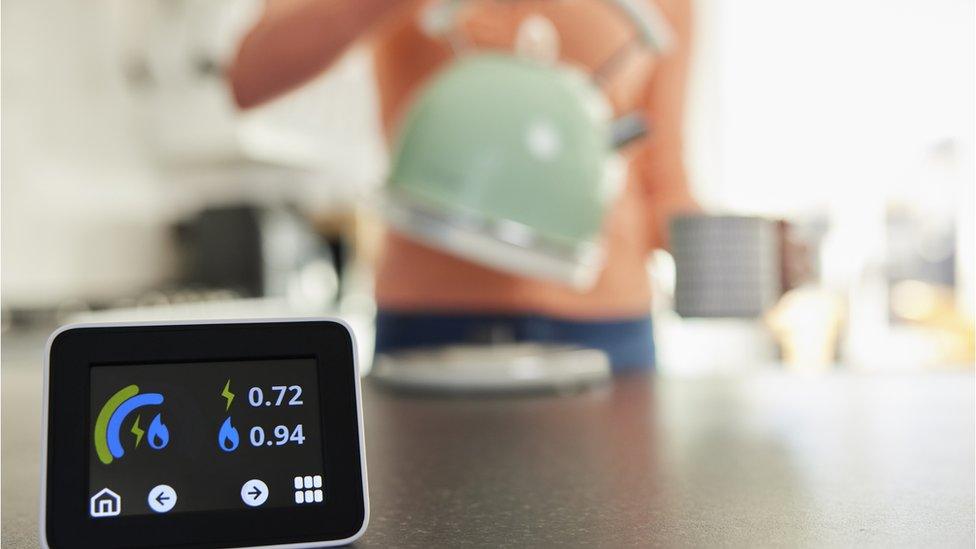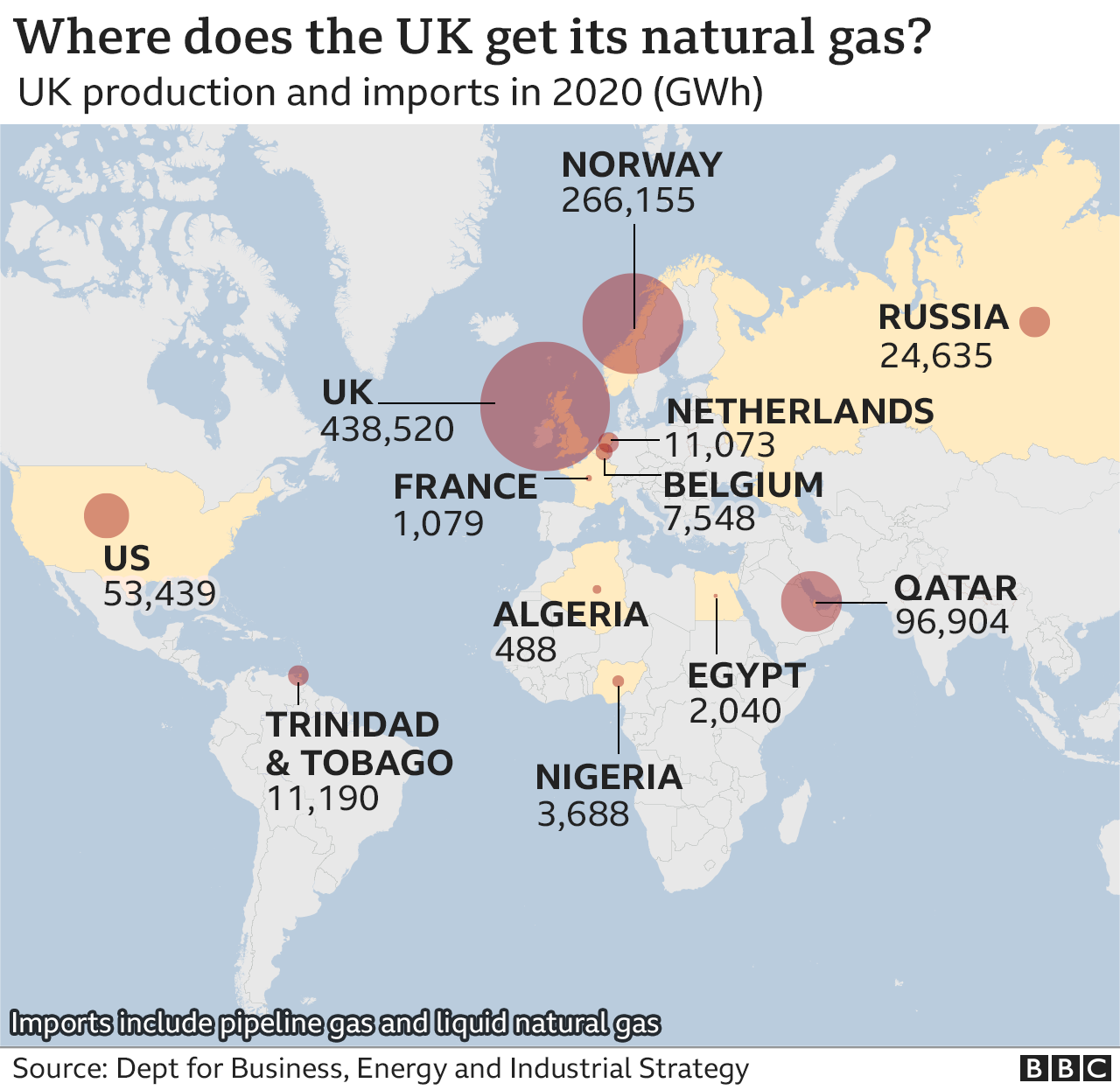Gas bills: Will Russia's invasion push up prices?
- Published
- comments

High energy prices are already causing problems for households in the UK and across Europe, and Russia's invasion of Ukraine is set to make the situation worse.
So where does the UK get its gas from and how much could bills rise?
How is Russia's invasion pushing up UK gas prices?
EU countries get about 40% of their gas directly from Russia. The UK gets less than 5% of its gas from Russia but its gas prices are affected by fluctuations in the global markets.
While Russian oil and gas exports aren't directly affected by Western sanctions, the prospect of further action by the US and EU is hitting Russian trade and pushing up gas prices globally.
The sanctions already imposed by Western nations are designed to stop Russia's banks from doing business in several major economies and trade areas. Separately Germany has blocked the progress of Russia's Nord Stream 2 gas pipeline.
Experts fear that Putin may decide to retaliate by reducing gas supplies to Europe. If this were to happen wholesale costs - (ie the cost suppliers face when buying to supply their customers) - would rocket and send prices higher everywhere, including the UK.

The energy cap will increase in April and could rise again in the autumn
How much could bills increase by?
Household energy costs have been kept in check by the price cap, external, but average household bills are expected to rise by about £700 to about £2,000 in April when the price cap is increased, and rise again in the autumn when the price cap is again revised.
The energy regulator Ofgem agreed to increase the cap after dozens of energy firms collapsed because they could not pass on the increased wholesale costs to their customers.
As a result, more than four million customers have been switched to a different supplier in the last year, often on a higher tariff.
Rising energy prices have already contributed to a big surge in the UK's cost of living, with inflation at 5.5% in the 12 months to January, the highest rate since March 1992.
Where does the UK get its gas?
About half of the UK's gas comes directly from the North Sea. The UK has been a big producer of gas since the mid-1960s, but the amount produced has fallen since 2000 while demand continues to rise.

Another third of the UK's gas comes through pipelines from Norway.
The rest come mainly as liquefied natural gas (LNG) imports in tankers from Qatar, the US and others.
The small amount of Russian gas the UK buys also comes in LNG form.
LNG supplies are particularly sensitive to global market prices, and are sold to whoever pays the most.
Does the UK face a gas shortage?
The government says the UK's energy bill crisis is due to high global gas prices, not security of supply.
However, that could change quite rapidly if Russian gas becomes scarce, as countries that depend heavily on Russian gas will have to compete for alternative supplies.
The UK also has limited storage facilities, which means it is more affected by short-term price fluctuations in the wholesale gas market than some other European countries which can hold greater reserves.
The government says it is "not complacent" about gas supplies. It does have the power to impose emergency measures, such as ordering big industrial customers to temporarily stop using gas.
Why is there a gas shortage?
Even before Russia's invasion of Ukraine, the market was in crisis.
Colder winters in 2021 put pressure on supplies and depleted gas reserves.
Those reserves would normally have been replenished in summer months but output dropped as some producers used this time to for maintenance postponed during Covid lockdowns.
Meanwhile, calm weather reduced the amount of electricity generated by wind power. As a result, wholesale gas prices more than quadrupled last year.
The UK has been especially badly-hit as it is one of Europe's biggest users of natural gas - 85% of homes use gas central heating, while gas also generates a third of the UK's electricity.
Correction 9 December 2024: This piece was corrected to remove a chart sourced to Gas Infrastructure Europe that did not fully reflect the situation with gas storage at the time, following a complaint to the BBC's Executive Complaints Unit. The data sourced to GIE does not report the full picture for the UK post Brexit.